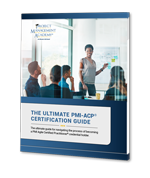Project Management Institute (PMI®), the world’s largest association for the project management profession, with over 700K members across 222 countries (Dec. 2023), maintains various management professional certifications. That is impressive growth from 2022’s 687K members and 217 countries.
The Project Management Professional (PMP®) may be the most widely known of the certifications, but it is not the only one. Active holders as of December 2023 are:
- Certified Associate in Project Management (CAPM®) 68,394
- Disciplined Agile Scrum Master (DASM) 5,488
- Portfolio Management Professional (PfMP®) 1,701
- Program Management Professional (PgMP®) 5,350
- Project Management Professional (PMP®) 1,454,550
- Agile Certified Practitioner (PMI-ACP®) 59,419 (up from 48,382 in 2022)
All PMI certifications have strict requirements for entry (contact hours, education, and experience), structured certification exams, and contact hour requirements (Professional Development Units (PDUs)) for maintenance.

Download the Ultimate Guide to learning about the PMI-ACP Certification.
PMI-ACP, Disciplined Agile, and PMP Certifications
PMI is moving away from prescribing a single, rigid approach to project management and instead emphasizing understanding and tailoring various tools and methodologies, including Agile, to meet the organization’s needs best and provide value to customers. There is no limit on the number or combination of PMI certifications a project manager can earn or maintain.
What is PMI-ACP
The PMI certification known as “PMI-ACP®” stands for “Project Management Institute-Agile Certified Practitioner.” Earn it through meeting all PMI-ACP requirements and passing the PMI-ACP exam; maintain it through continuing education efforts. It is a Project Management Institute (PMI®) project management certification, such as Project Management Professional (PMP®), but with an Agile focus. PMI states that those with PMI-ACP® designation have proven their skills and knowledge:
- Understanding and applying multiple agile approaches, including Scrum, Lean, Kanban, and Test-Driven Development.
- Engaging stakeholders effectively to gather requirements, incorporate feedback, and ensure project success.
- Delivering value to customers through iterative development cycles and employing agile metrics for informed decision-making.
Having a Scrum Master job title, working in agile project management using Agile methodology, or knowing Agile principles does not equate to certification. You must meet education requirements to qualify to take the PMI-ACP exam, which will verify your status as a PMI Agile Certified Practitioner.
PMI-ACP Certification: Understanding Landscape of PMI-ACP Careers
PMI publishes monthly certification number reports. Whereas CAPM or PMP certifications provide a broader understanding of project management as a field with multiple methods and approaches, PMI-ACP is specific to Agile.
PMI-ACP growth leveled off after a period of incredible growth but continues to rise. Some surmise that the introduction of Disciplined Agile certifications, also from PMI, caused some market confusion, and others feel the infusion of Disciplined Agile content strengthens the Agile project management portfolio.
PMI-ACP demand is strong, and PMI-ACP careers have experienced reliable growth based on job posts (types, locations, and quantities) and project management-related salary reports.
PMI-ACP Certification Benefits for Industry
PMI-ACP certification has relevance and application across industries, especially those actively practicing agile methodologies for project management. For example:
- Finance: Risk Management, customer-centric solutions, Agile Portfolio Management.
- Healthcare: adaptation to regulatory changes, efficient project management.
- Information Technology (IT): improved project delivery, collaboration, and change adaptability.
- Manufacturing: realize product innovation, supply chain optimization, and adaptability.
- Software Development: increased productivity, quality assurance, faster time-to-market.
PMI-ACP certification equips a project manager to achieve successful outcomes across diverse industries.
PMI-ACP Careers: Exploring Opportunities
PMI-ACP certification can bring value to an existing career and open new career opportunities. For some organizations, a PMI-ACP certification is a requirement for specific job titles, and for others, achieving PMI-ACP certification is part of a career path or salary incentive program. PMI-ACP jobs include:
- Agile Coach
- Agile Consultant
- Agile Project Coordinator
- Agile Project Manager
- Agile Team Lead
- Agile Trainer
- Business Analyst (Agile BA)
- Scrum Master
- Product Owner
- Project Manager
- Quality Assurance (QA) Manager
- Release Manager
- Scrum Master
- Technical Business Analyst
PMI-ACP certified professionals can specialize in various aspects of agile project management or application of Agile in a specific industry depending on their interests and goals.
PMI-ACP Demand and Salary
The demand for professionals with agile experience should continue increasing as organizations recognize the value of agile practices and adopt them more. According to PMI reporting, the PMI-ACP demand may have slowed from the meteoric launch, but there are no signs of it ending.
PMI reporting for how many PMI-ACP certified in the world:
- 2023: 59,419
- 2022: 48,382
Project Management Institute (PMI®)’s Pulse of the Profession® report states that 86% of PMI-ACPs qualified for new opportunities, and 84% of PMI-ACPs gained recognition for career advancement. With high PMI-ACP demand and growth in PMI-ACP careers, preparing for and maintaining the certification can contribute to your success as an Agile project manager professional, no matter how many PMI-ACP certified in the world.
PMI-ACI demand is not limited to location or industry. For US job posts, ZipRecruiter reports that there are 12 states where the typical salary for a PMI-ACP job is above the national average: New York is 16.7% above the national average of $46,961, and Pennsylvania is 6.9% above it.
PMI-ACP Jobs: Job Search Preparation and Strategy
Your PMI-ACP-certified focused job search can be more effective when you have consistent strategies and are ready when that perfect job opportunity becomes available.
- Be active in Agile and Project Management groups: actively contribute to and participate in agile project management LinkedIn groups, professional associations, and networking events.
- Complete Agile-related training: attend workshops, training, and conferences to stay updated on industry trends and hear about potential job leads.
- Customize job applications: tailor your cover letter and resume to highlight PMI-ACP certification, relevant experience, and your skill alignment with the job opening.
- Earn PMI certifications: gain agile-related certifications to demonstrate your knowledge of industry best practices and standards regardless of industry.
- Prepare for interviews: research the company, prepare answers to common interview questions related to agile project management, and practice speaking to your relevant work experience and career goals.
- Refresh your LinkedIn Profile: across the summary, headline, certifications, and job experience, highlight your agile project management skills, achievements, certifications, and training.
- Update your resume: highlight your PMI-ACP certification, agile project management experience and achievements, and certifications.
PMI-ACP Jobs: Where to Find Them
Streamline the job search process for opportunities in agile project management and related roles using these strategies:
- Notify your network of your job search: connect with colleagues, mentors, former classmates, and industry contacts about your job interests and availability.
- Set up job alerts on Job Search sites: set up customized job alerts and use search filters on multiple job search platforms such as LinkedIn Jobs, Indeed, and Glassdoor for opportunities for PMI-ACP-certified professionals.
- Talk with your supervisor: include career growth and aspirations in conversations with your leader to be considered for advancement and opportunities.
- Use Project Management Institute (PMI) resources: use the PMI.org job board and PMI career development resources, webinars, and networking events.
Conclusion
Agile methodologies are becoming increasingly prevalent in project management, with organizations in many industries recognizing the value of agile skills and expertise. Learning agile principles and demonstrating proficiency through the PMI-ACP certification can benefit professionals interested in advancing their project management careers.
PMI-ACP certification holders can hold various roles, such as project manager, scrum master, certified product owner, or agile coach. Credentials, like PMP and PMI-ACP, can be combined to fuel advancement in conjunction with a combination of job search tactics.


 New Horizons
New Horizons
 Project Management Academy
Project Management Academy
 Six Sigma Online
Six Sigma Online
 TCM Security
TCM Security
 TRACOM
TRACOM
 Velopi
Velopi
 Watermark Learning
Watermark Learning
 Login
Login




 New Horizons
New Horizons
 Project Management Academy
Project Management Academy
 Velopi
Velopi
 Six Sigma Online
Six Sigma Online
 TCM Security
TCM Security
 TRACOM
TRACOM
 Watermark Learning
Watermark Learning